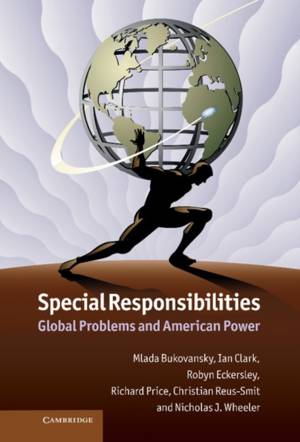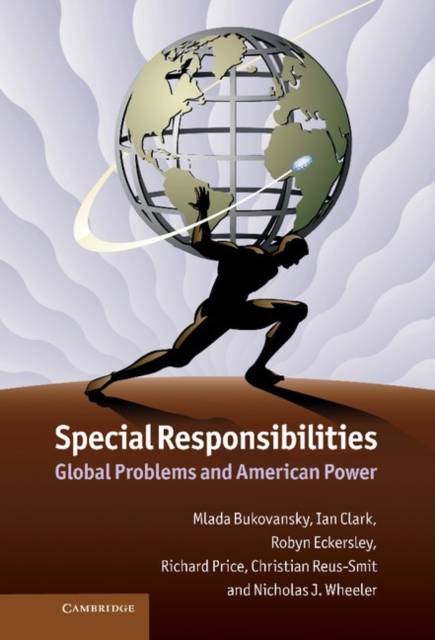
- Afhalen na 1 uur in een winkel met voorraad
- Gratis thuislevering in België vanaf € 30
- Ruim aanbod met 7 miljoen producten
- Afhalen na 1 uur in een winkel met voorraad
- Gratis thuislevering in België vanaf € 30
- Ruim aanbod met 7 miljoen producten
Zoeken
Special Responsibilities
Global Problems and American Power
Mlada Bukovansky, Ian Clark, Robyn Eckersley
Hardcover | Engels
€ 136,95
+ 273 punten
Uitvoering
Omschrijving
The language of special responsibilities is ubiquitous in world politics, with policymakers and commentators alike speaking and acting as though particular states have, or ought to have, unique obligations in managing global problems. Surprisingly, scholars are yet to provide any in-depth analysis of this fascinating aspect of world politics. This path-breaking study examines the nature of special responsibilities, the complex politics that surround them and how they condition international social power. The argument is illustrated with detailed case-studies of nuclear proliferation, climate change and global finance. All three problems have been addressed by an allocation of special responsibilities, but while this has structured politics in these areas, it has also been the subject of ongoing contestation. With a focus on the United States, this book argues that power must be understood as a social phenomenon and that American power varies significantly across security, economic and environmental domains.
Specificaties
Betrokkenen
- Auteur(s):
- Uitgeverij:
Inhoud
- Aantal bladzijden:
- 304
- Taal:
- Engels
Eigenschappen
- Productcode (EAN):
- 9781107021358
- Verschijningsdatum:
- 9/07/2012
- Uitvoering:
- Hardcover
- Formaat:
- Genaaid
- Afmetingen:
- 152 mm x 229 mm
- Gewicht:
- 612 g

Alleen bij Standaard Boekhandel
+ 273 punten op je klantenkaart van Standaard Boekhandel
Beoordelingen
We publiceren alleen reviews die voldoen aan de voorwaarden voor reviews. Bekijk onze voorwaarden voor reviews.











